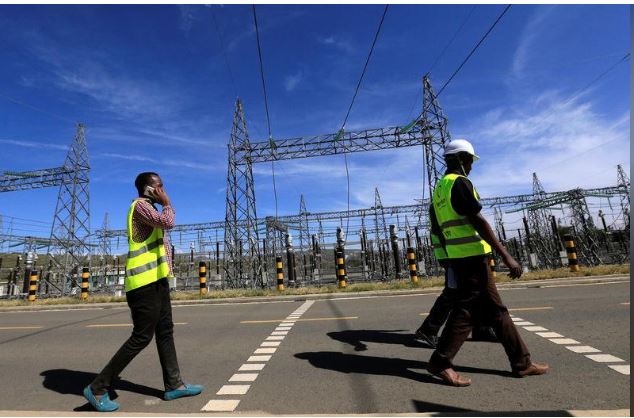
U.S. workers from farm labourers to builders could lose billions of dollars in earnings each year as extreme heat makes it difficult for them to work outdoors safely, researchers warned this week, calling for urgent measures to protect them.
Americans whose job requires them to be outside could lose about $1,700 on average each year by around 2050 unless planet-heating fossil fuel emissions are slashed, according to a report by the Union of Concerned Scientists, a nonprofit.
“Workers should not be put in a position of having to choose between their health and a paycheck,” said Rachel Licker, a senior climate scientist at the organization.
“We need urgent action now,” said Licker, recommending steps such as greater flexibility on working hours to avoid midday heat and lighter workloads to reduce the health risks.
Protective clothing and wearable heat sensors could also be used to minimize risk and safeguard workers’ earnings, Licker and her co-authors said.
While such steps could help low-income workers such as agricultural labourers or construction employees maintain their earnings, Licker noted that emergency services personnel, for example, cannot choose when they work.
“It’s not necessarily a silver bullet solution … (but) we did see that there’s definitely a lot of potential in avoiding some of those impacts,” she told the Thomson Reuters Foundation by phone.
As heat waves become more frequent, she said simple workplace guarantees such as access to shade, cool drinking water and regular breaks were vital.
“Even in 2021, we saw outdoor workers dying on the job because of heat exposure. And that was because of a lack of access to those really, quite frankly, basic standards,” Licker said.
Heat-related fatalities among outdoor workers also disproportionately affect Black and Hispanic people, who are over-represented in outdoor labor such as agriculture, researchers have found.
“There’s a big social equity component to this in terms of who tends to have the jobs where they’re working outside,” said Andrew Pershing, director of climate science at Climate Central, a research group.
A few states and the federal government have taken steps to enact specific protections against the effects of extreme heat.
Earlier this week, California rolled out new steps including partnerships with local health departments and community organizations that work with farmworkers and other outdoor workers in an effort to protect them from job-related exposure.
Hundreds of people in California and across the Pacific Northwest and Canada died amid record-setting temperatures in 2021, spurring Washington state and Oregon to enact new heat protection rules.
In September, President Joe Biden instructed his administration to take steps to address extreme heat as pressure over the issue intensifies.
Steps could include creating a federal workplace heat standard and prioritizing workplace inspections on hotter days.
It could, however, take years for such federal protections to be implemented, Licker said.
“People are dying already because of this issue,” Licker said. “It’s time to get our act together.”

